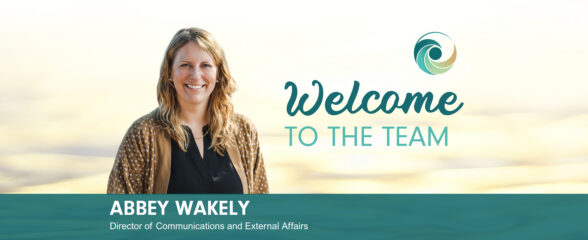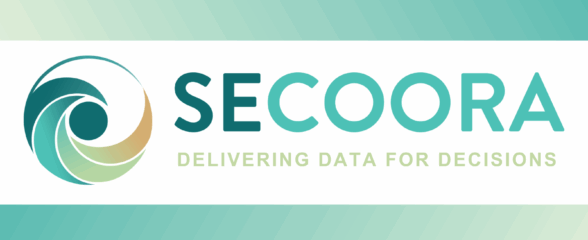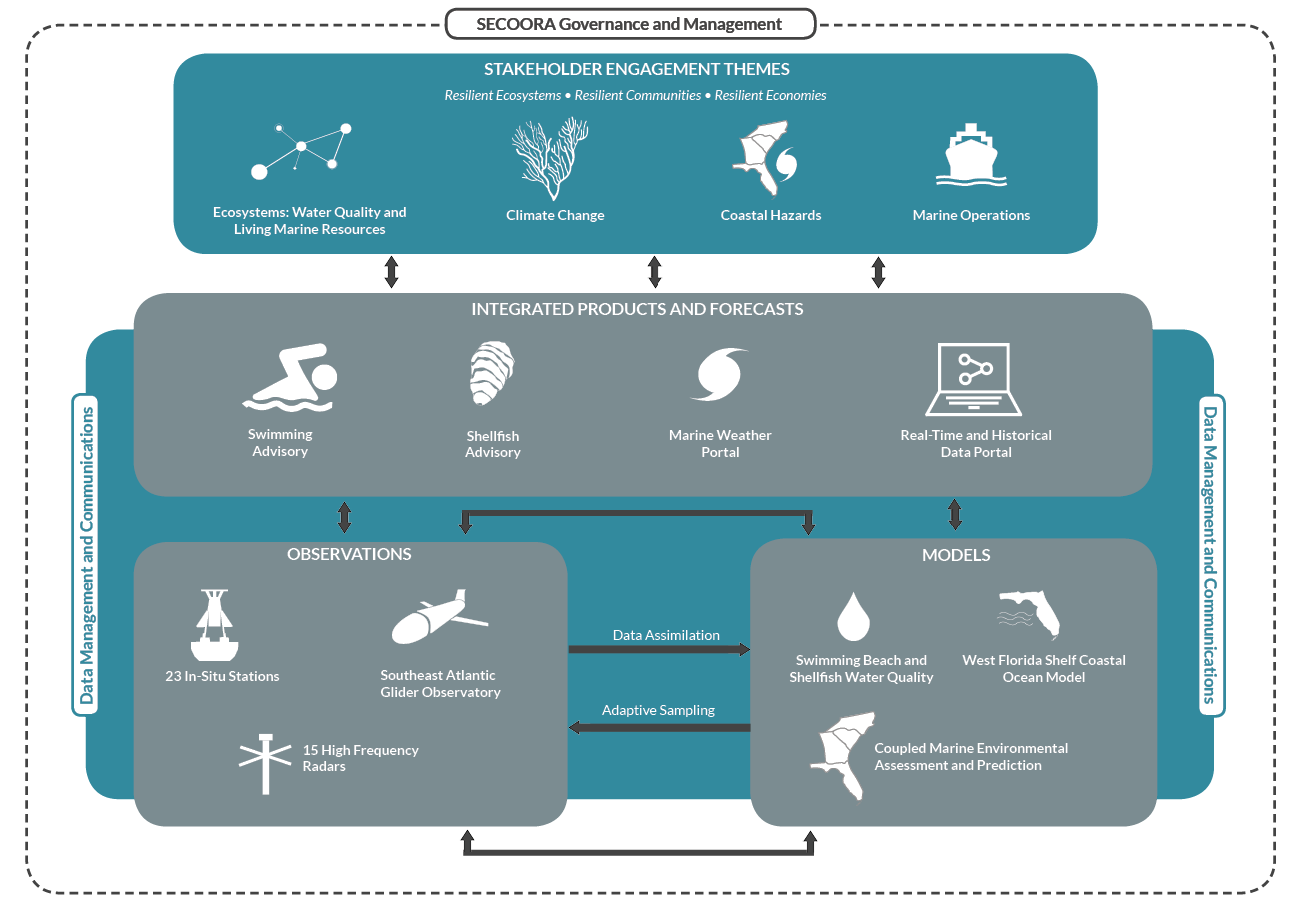The NOAA U.S. Integrated Ocean Observing System (IOOS) awarded SECOORA $2.5 million to support the maintenance and expansion of ocean and coastal observing in the southeast. This will be the first installment in a five-year funding cycle.
Over the next five years, SECOORA will continue to support the 15 high frequency radars, 23 in-situ stations, 3 operational model forecasts and 2 integrated products for stakeholders that comprise the SECOORA observing system.
To address long-standing gaps on the east coast, SECOORA is investing in a regional glider observatory to gather historically lacking data on shelf circulation and water properties in the South Atlantic Bight. The project will provide regional 4-D information about temperature, salinity and density structure, and oxygen/turbidity/CDOM/chl-a concentrations.
Responding to the potential deepening of the busiest port in the state of South Carolina, Charleston Harbor, SECOORA is installing a new coastal water quality and meteorological station to address the gap in continuous monitoring of the surface and bottom waters in Charleston Harbor.
Above is a schematic of Year 1 of the proposal. With oversight from Governance and Management, and in collaboration with PIs and Data Management and Communications, SECOORA will continue to manage and integrate observations and models for a suite of tools, applications and products. Each component is linked to priority stakeholder needs under four themes.
“Ocean observing is a collaborative effort, and in order to build a strong, comprehensive national network, it's essential that we work with dynamic regional associations who are integrated into the communities they serve. It's because of regional associations like SECOORA that the national Integrated Ocean Observing System is able to reflect the needs of so many diverse communities and industries who need observing data every day.” –Zdenka Willis, Director, U.S. IOOS.
Additional Information:
Proposal Process: https://secoora.org/ioosproposal2015
NOAA US IOOS: http://www.ioos.noaa.gov/
SECOORA Projects Page: https://secoora.org/about/theme_areas/projects
Related news

Abbey Wakely Joins SECOORA as Director of Communications and External Affairs
SECOORA welcomes Abbey Wakely as their new Director of Communications and External Affairs, where she will lead strategic engagement, communications, and external relations to strengthen the organization’s regional impact.

SECOORA Request for Proposals for a Data System Development, Operations, and Maintenance Service Provider
SECOORA seeks a Data System Development, Operations, and Maintenance (DMAC) service provider to act as a strategic partner while maintaining the current SECOORA Data System. Proposals are due to SECOORA by 5:00 PM ET, March 31, 2026.

Plankton Perfect: Using Imagery to Document Microscopic Marine Life
Dr. Enrique Montes is working to understand how plankton respond to changes in the ocean by capturing high resolution imagery with advanced technology. This work is funded by the Marine Biodiversity Observation Network (MBON) to use novel techniques like the Continuous Particle Imaging and Classification System (CPICS).
